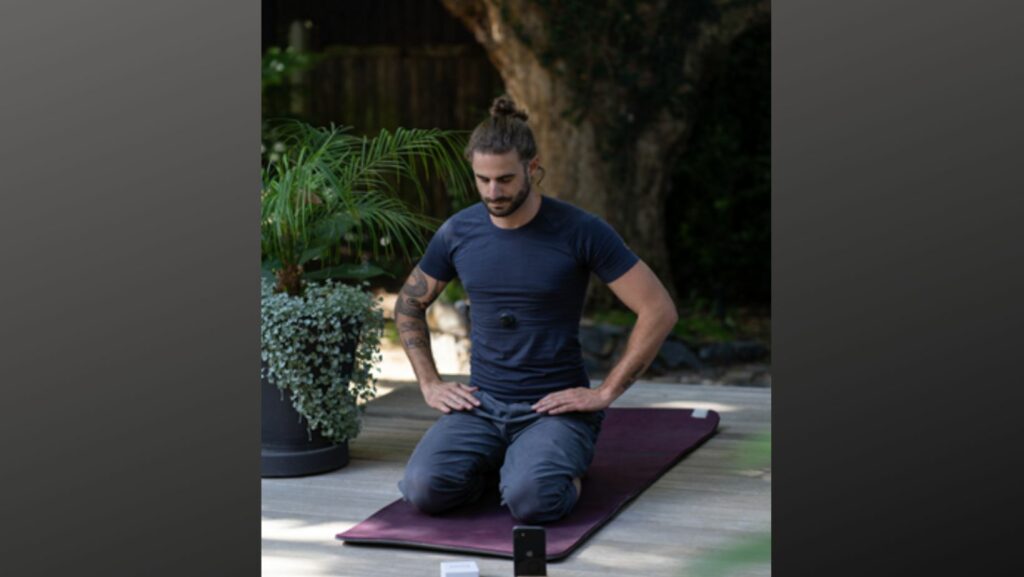There are numerous healthy coping strategies that can be taught and learned in substance abuse group therapy sessions. If you are serious about healing and living a life free from addiction, you should endeavor to explore substance abuse group therapy coping strategies. There is nothing that a clear and determined headspace can’t achieve. You can do anything that you put your mind into. You can all the more achieve anything if you admit that you need support and allow others to help you. This is the first step to healing. The fact that you’re reading this and you’re willing to learn is a feat in itself. This is the start of your new life. The following are effective coping strategies that you will learn and should practice upon joining a substance abuse group therapy:
1. Deep Breathing Exercises
This coping strategy will help in calming your nervous system. Through continuous practice, it will help in reducing anxiety and stress.
Steps:
1. Find a place where you lie down or sit in a comfortable manner.
2. Inhale through your nose. Inhale deeply and aim to fill your lungs.
3. Exhale through your mouth in a slow manner.
4. Repeat until you feel a significant change in your mood.
Deep breathing will lower your heart rate, reduce anxiety, and enhance relaxation.
2. Mindfulness Meditation
When practicing mindfulness, all that you need to do is to focus on the present moment. How to do this? Accept your environment and your thoughts ––– absolutely everything ––– without judgment. It is that simple.
Steps:
1. Look for a quiet place where you can be to yourself and be in a comfortable position. You can sit, stand, or walk while doing this.
2. If seated and in a position where you could, you could close your eyes. Upon closing your eyes, you can take deep breaths.
3. Zone in on your breathing. As you breathe, observe your thoughts without reacting.
4. Do this for a minute. If you can do this for a minute, extend it to five minutes. Extend your sessions slowly until you can already do a full hour of meditation.
Meditation will allow you to effectively regulate your emotions and reduce your stress levels. It will also reduce, if not remove, your anxiety.
3. Grounding Techniques
To ground yourself is to pull yourself into the present moment.

This avoids dissociation and allows you to make intelligent decisions rooted in the present. Grounding will allow you to focus on what is truly important.
Steps:
1. Look around your environment and name five things within your sight. These are things around you that you can see.
2. Now, look for four things that you can touch. Touch the following things.
3. Upon touching, focus on what you can hear. What can you hear? Name three things that you can presently hear.
4. Upon noticing three things that you can hear, focus on your sense of smell. Name two things that you can smell.
5. Upon connecting with your sense of smell, it’s now time to name one thing that you can taste.
Through grounding, you’d be able to improve your awareness of the present moment. Your focus and mental clarity will also be boosted. You will experience less panic.
4. Progressive Muscle Relaxation
With this coping strategy, you will be engaging your muscles by intentionally tensing and relaxing particular muscle groups.
Steps:
1. Look for a quiet area or space where you can comfortably lie down.
2. Start with your feet through your toes. Tense your toes for five seconds.
3. Slowly let go and release the tension.
4. Move to the next muscle group.
Doing this will promote relaxation and reduce muscle tension. You will also effectively reduce the physical manifestations of your anxiety.
5. Cognitive Restructuring
Cognitive restructuring will require you to identify and challenge your thought patterns that are negative. Through it, you will be able to replace such negative thoughts with positive ones. You will need to be absolutely honest and non-judgmental when you do this.
Steps:
1. Identify a negative thought. Recognize it by being observant of your thoughts.
2. Use evidence — test this thought and use evidence against and for it.
3. Replace such thought with a balanced and logical thought. Use your reason to replace such a thought with an intelligent thought.
Through intentional cognitive restructuring, you will be able to significantly reduce negative thinking. You will have an overall better mood and outlook in life. You will also begin to experience the joys of positive self-talk.
6. Journaling
One of the easiest ways to cope with any stress is by writing your thoughts down.

As you write your thoughts, you’ll be able to figure out your headspace and know where you’re at and how you feel about different aspects of your life. It is an effective tool if you want to become more self-aware and in tune with your internal world.
Steps:
1. Set a time and place each day for you to write.
2. When writing, feel free to write about your thoughts, feelings, and experiences.
3. Upon writing, reflect on what you’ve just written and gather insights.
Journaling will allow you to release all your emotional struggles in a healthy and soothing way. It will effectively help you identify your triggers as you become more and more self-aware.
References:
Journaling for Emotional Wellness
https://www.urmc.rochester.edu/encyclopedia/content.aspx?ContentID=4552&ContentTypeID=1

